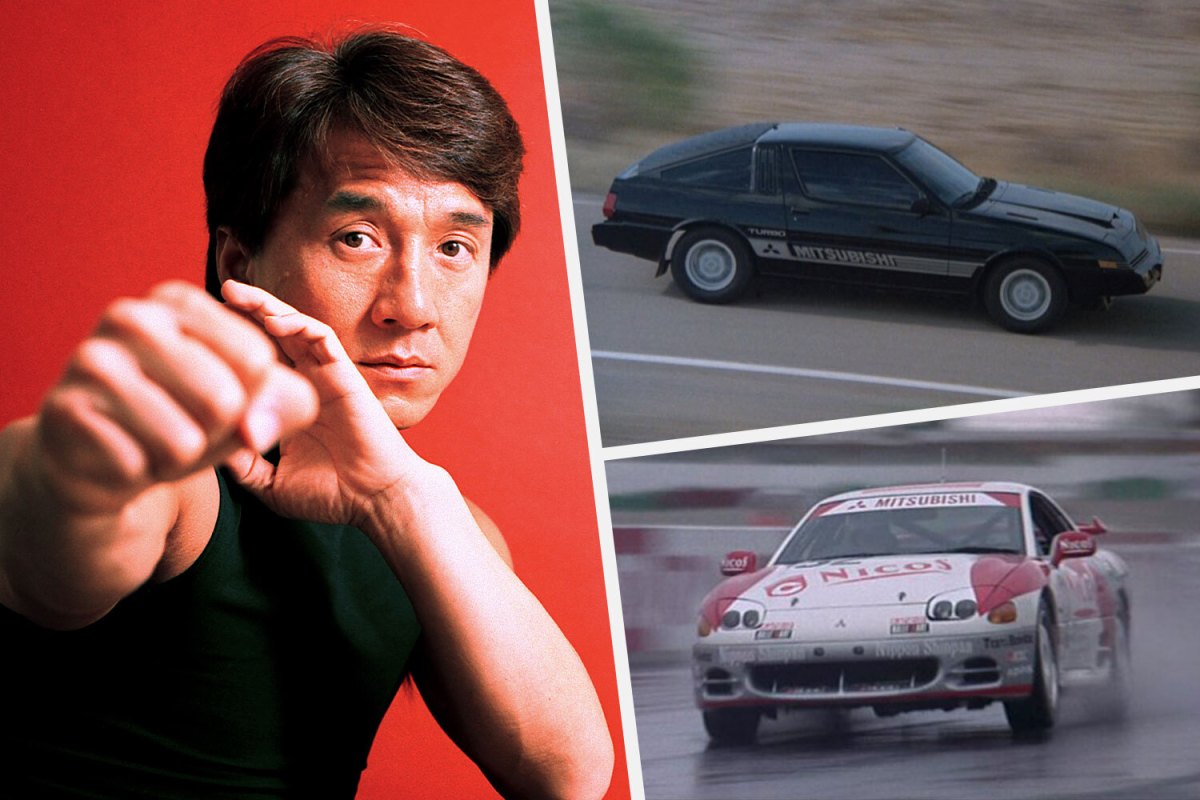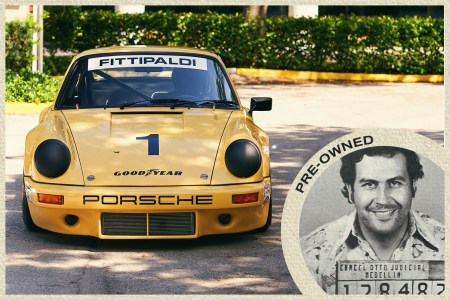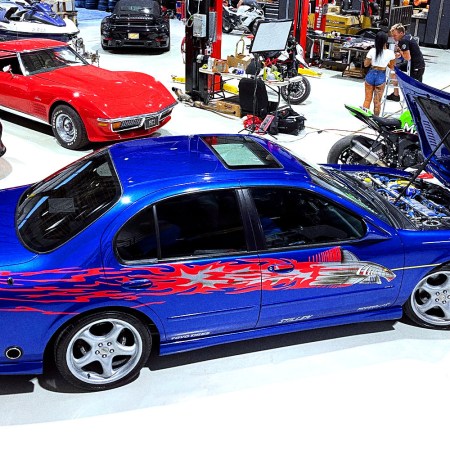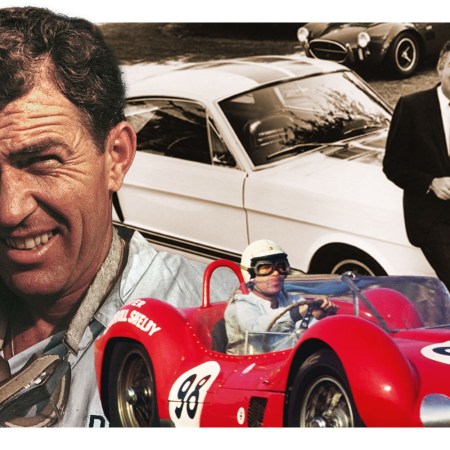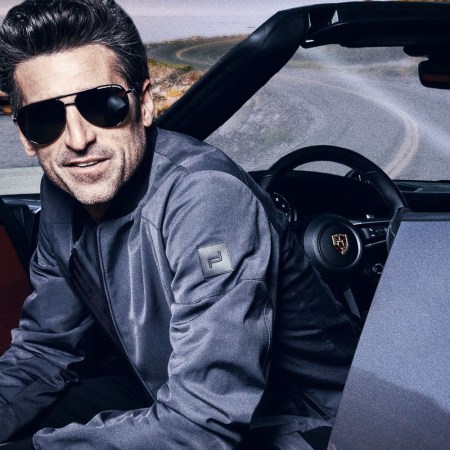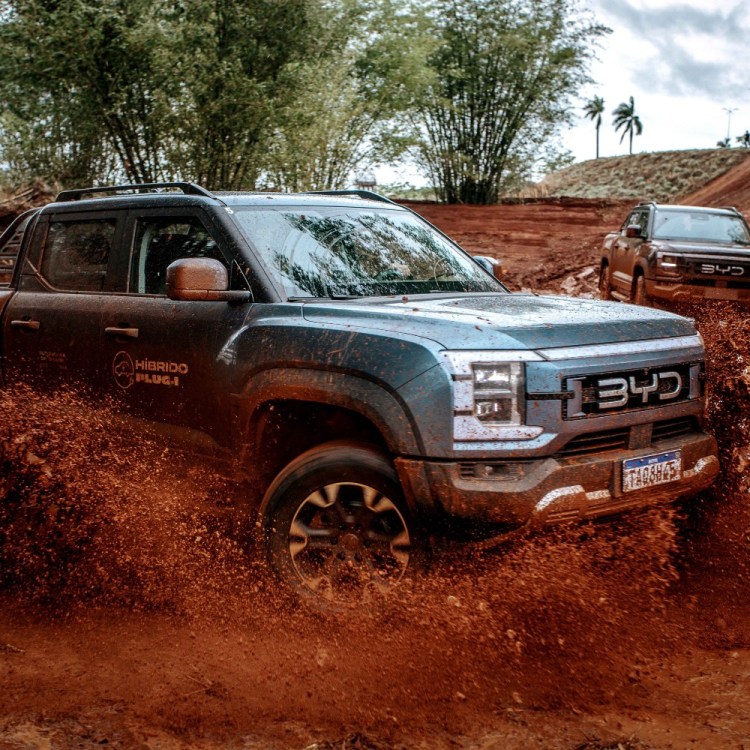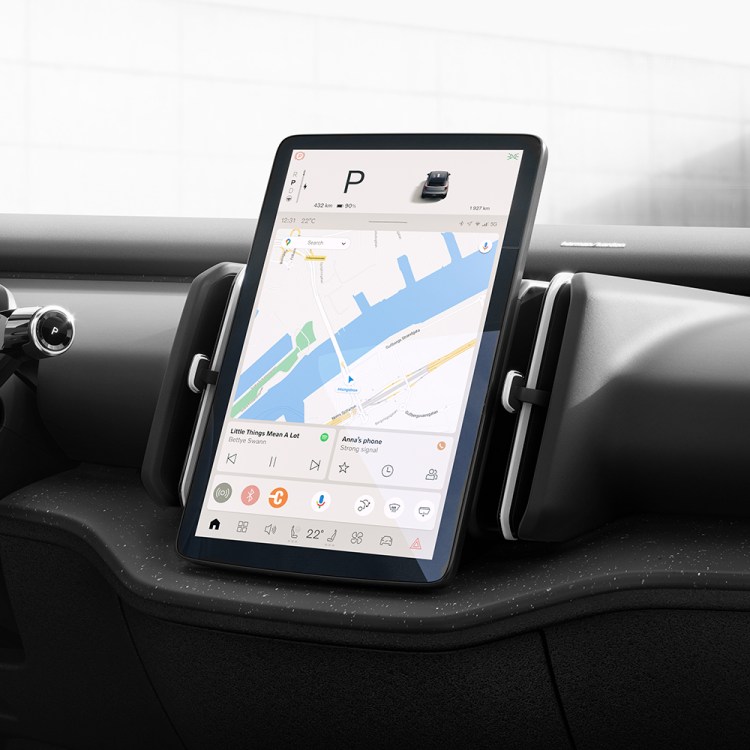The current crop of celebrities who moonlight as automotive influencers are easily identified by their links to popular movie franchises (as is the case with Sung Kang of Fast & Furious), high-level racing (David Letterman in IndyCar, Patrick Dempsey in WEC and Rolex Sports Car competition) or collecting (Jay Leno‘s enormous L.A. warehouse, Rowan Atkinson’s U.K.-based lineup). Turn back the clock to the 1970s, however, and you’ll find a surprising name whose partnership with a major automotive brand served as an early template for what eventually became the current influencer industry.
Jackie Chan, perhaps the world’s most famous martial artist and by far the biggest star to ever emerge from the Hong Kong film world, had business savvy that extended well beyond the silver screen. This was reflected not just in his creative career but also the corporate relationships he built along the way. On the automotive side, his decision to get into bed early with Mitsubishi, an upstart Japanese brand intent on making a splash outside its home market, paid enormous dividends for both Chan and the company’s profile throughout Asia.
Growing the Brands Side-by-Side
It’s hard to overstate just how famous Jackie Chan is outside of Hollywood. While it’s true that many of the more than 100 films Chan has starred in, directed or produced over the last 50 years or so have been hits in the North American market, before titles like Rumble in the Bronx or Rush Hour made waves on this side of the Pacific, Chan was already well established as an entertainment mogul whose combination of action, comedy and drama had revolutionized filmmaking in Hong Kong. This is a man, after all, whose engagement announcement in the early 1980s prompted some of his fans to take their own lives after realizing they wouldn’t be beside him at the altar.
Pablo Escobar: Drug Lord, Supercriminal and … Wannabe Race-Car Driver?
Tracing the racing aspirations of Colombia’s worst menace from the Renault 4 to Formula 1After starting out primarily as a stuntman, Chan began to receive attention in starring roles around 1976, and by the time he had filmed Drunken Master two years later, it was clear that his take on making movies that combined punchlines with actual, jaw-dropping punches and set pieces was where audiences were headed. It was around this time that Mitsubishi came knocking with an intriguing offer for Jackie: become our spokesperson, and we’ll do what we can to find funding for the movies you want to make.
It was a win-win proposition on both sides of the camera. For Chan, the arrangement meant access not just to the cash he needed to push forward with the series of films he had planned with partners and lifelong friends Yuen Biao and Sammo Hung, but it also offered him a seemingly endless parade of cars, trucks and vans that Mitsubishi was all too happy to provide him with so they could be seen by his surging fan base.
Moving Beyond a Simple Spokesperson
It’s here that the arrangement between Chan and Mitsubishi began to take on more than just a traditional sponsorship. It wasn’t long before nearly every vehicle Jackie drove in front of a camera had a Mitsubishi badge on it, whether it was a hot rod van as precursor to modern-day food trucks in Wheels on Meals, or a more pedestrian Cordia mowing through a shantytown in Police Story. Over the course of the years, Chan would also have access to prototype Mitsubishi models that were never even offered for sale to the general public, giving his movies that much more cachet as compared to rivals who had to settle for filming whatever they could pick up from the showroom.
The partnership was even able to flex its corporate muscle overseas. After Jackie Chan’s first role in a major American motion picture (The Cannonball Run) saw him driving a rocket-powered Subaru, Mitsubishi stepped in and made sure he was back in a super-advanced Starion for the sequel, even going so far as to write Chan’s character into the script as a Mitsubishi engineer.
Cannonball Run II also marked the beginning of Mitsubishi building special models exclusively with Jackie Chan in mind. The first was a one-of-one modified Starion presented to him as a memento of sorts post-shoot, and eventually a limited run of 50 Jackie Chan-edition Lancer Evolutions would be built in the mid-2000s.
Winning Off-Screen, Too
Mitsubishi extended its support to Chan’s forays into the racing world, starting with the Jackie Chan Cup in 1984 that operated as a celebrity-friendly charity event (which lasted until 2003). The company would provide support vehicles and actual race-prepared cars to be used on the track, with Chan driving when he could and acting as the grand marshal when he couldn’t.
Naturally, real-life motorsports led to Chan’s most obvious tribute to his lifelong business partner in the form of Thunderbolt, a 1995 film that once again saw the automaker successfully write itself into the script. Jackie played the role of a dedicated Mitsubishi fan who races not just an Evo on the street and on the track, but also a GTO supplied directly by a character working for the company, which leads to a memorable spin-ending to the race (and a post-checkered flag serving of justice).
Following Thunderbolt, Jackie became involved with long-distance rally racing (with Mitsubishi’s Dakar entry in 2000 and 2001), and was also granted the largely ceremonial position of “director” of the Ralliart China racing division, which represented Mitsubishi’s competitive efforts in that country. Ironically, Chan’s only non-charity racing success came during a rare recent step-out from Mitsubishi’s umbrella when his Jackie Chan DC Racing Team won at Le Mans in the LMP2 class in 2017.
Ahead of the Curve
Jackie Chan’s near-360-degree partnership with Mitsubishi was groundbreaking in terms of how celebrities and car companies could work together. While big names like Steve McQueen and James Garner had raced seriously in the 1960s and 1970s, they didn’t parlay those passions into much more than the occasional appearance in ads. Paul Newman’s racetrack relationship with Nissan came closer to capturing the potential of marrying an actor to an automaker, but it wasn’t until Chan arrived on the scene that the idea of an influencer whose star could add extra shine to a brand’s logo outside of traditional commercials began to take off.
If social media had existed in the 1980s and 1990s, it’s a sure bet that Jackie would have been smiling on Instagram while he gave personal tours of his own Mitsubishi-heavy car collection, or took his fans with him on a livestream as he went off-roading in one of the many Pajero SUVs he later became obsessed with. Even without the ability to reach out directly to fans, Chan’s efforts to fold Mitsubishi models into nearly every aspect of his creative output for more than 30 years provided an early look at the influencer lifestyle that has become today’s norm.
This article appeared in an InsideHook newsletter. Sign up for free to get more on travel, wellness, style, drinking, and culture.
